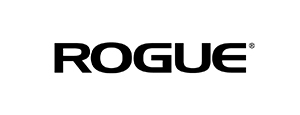Weightlifting Battles Doping Ahead of Rio Olympics
(ATR) Nearly 50 weightlifters could be sanctioned by the IWF for doping violations in 2015.
The International Weightlifting Federation sanctioned 25 athletes for positive doping cases so far from 2015. The year ended with a wave of 24 adverse findings at the 2015 World Championship held in Houston, Texas in November. Until the appeals process is finalized those cases cannot be considered positive cases, but if most of them are confirmed, the totals for 2015 will approach the 50 mark.

Ryo Un Hui of the People’s Republic of Korea was one of the athletes to register a positive doping case in Houston (Getty Images)
On top of those cases, the IWF barred the Bulgarian Weightlifting Federation from competing at the 2016 Olympics due to 11 positive cases ahead of the 2015 European Games.
The numbers would appear to put the IWF on track for the fourth highest number of cases recorded in a calendar year since the IWF first published doping sanctions on their website in 2003.
Those adverse findings from Houston accounted for 19 medals at the championships, two senior world records, and one junior world record. Athletes testing positive came from Azerbaijan, Belarus, Greece, Kazakhstan, Moldova, People’s Republic of Korea, and Russia.
After releasing the names of the 24 cases, the IWF credited the anti-doping efforts for their work in protecting clean sport and working with World Anti-Doping Agency accredited laboratories.
“The IWF is determined to continue its highly strict program and won’t give up the fight for the honor of the clean athletes,” the federation said in a statement.
In Houston, IWF President Tamas Ajan said close to 30 percent of athletes were tested, a high number compared to other sports. He says testing more athletes means the potential for more positive tests to arise. But he says the testing also shows the federation commitment to protecting those who lift cleanly.
“Weightlifting would like to show what federations can do to control doping,” Ajan said toAround the Rings.
“I am smiling because here at the world championships we are making around 220 doping controls. Naturally making 220 controls means more of a chance to find more positive cases. But this is how we are working. We have to stop the use of any forbidden substances,” said Ajan.
World Anti-Doping Agency President Craig Reedie tells ATR the number of positive cases is a concern.
“We certainly have noticed the spate of positives from weightlifting and we will need to discuss this with them,” he says. He notes that the IWF has taken steps to bar repeat offender Bulgaria from Rio and the 2015 world champs. WADA does not have this power says Reedie, but the agency compliance group “is well aware of the situation.”

IWF President Tamas Ajan. (ATR)
At the 2015 World Championships IWF officials told ATR they were hoping to show there would be fewer positive cases than at the 2014 edition in Kazakhstan. It did not work out that way. In 2014 eight lifters tested positive for banned substances, one third the number of the cases pending from Houston.
A spokesperson for the IWF told ATRthe number of positive cases from Houston was distressing, but says I that’s one result of increased testing.
“This is at the same time a clear evidence for the effectivity [sic] of the systematic anti-doping program of our Federation,” the spokesperson said.
The spokesperson added that the IWF spends 20 percent of its yearly budget on anti-doping measures. An additional 23 percent is spent by the federation on worldwide education programs to promote clean sport.
According to a spokesperson from the United States Anti-Doping Agency, both USADA and the IWF chose, independent of each other, which athletes to test at the championships.
The spokesperson told ATR that the testing arrangement between the national anti-doping organization and the IWF was not out of the ordinary for a World Championship. They added, the number of positive cases from the championships were “certainly concerning,” but felt it shows that athletes who dope would be caught.
“This was a reminder of the need for robust, year-round testing programs that are capable of preserving a level playing field and protecting the rights of clean athletes around the world,” the spokesperson said to ATR.
USA Weightlifting, the host of the 2015 World Championships, told ATR that the federation is hopeful the results from this year will lead to increased testing and scrutiny ahead of the 2016 Olympics, so all clean athletes are protected.
“The recent positive tests from the 2015 IWF World Weightlifting Championships will most certainly put the sport in the spotlight leading up to the 2016 Games,” a spokesperson from USA Weightlifting said to ATR. “We hope to see a fair and equal playing field in the sport both nationally and internationally.”
ATR understands that the cases published by the IWF in 2015 were only a fraction of the total number of weightlifters registering positive doping cases worldwide. As national anti-doping organizations have their own testing programs, positive cases are reported by these bodies from non-IWF competitions.
Dr. Magdolna Trombitás, IWF legal counsel, told ATR that only cases where the IWF was in charge of the result from the competition are reported on the federation website. The IWF will only discipline a national federation if it registers three anti-doping violations in a 12-month span from IWF managed tests, not tests done solely by national anti-doping organizations.

About 30 percent of the 600+ lifters were tested at the Houston championships (Getty Images)
“The rule is very clear in separating the national cases form the international ones,” Trombitás said. “The IWF sanctions the Federation in case multiple international anti-doping rule violations.”
Trombitás says cases from national anti-doping organizations are reported to WADA where they eventually will be published in the body’s 2015 report. Until the report is published, the exact number of worldwide weightlifting violations isn’t known.
The number of IWF confirmed doping cases will not seem to affect the sport’s position on the Olympic program ahead of the 2016 Games. A spokesperson with the IOC told ATRthat it was normal for international federations to increase their anti-doping testing in the run up to the Olympics. On top of that the IOC said it “fully support and encourages these efforts,” from weightlifting.
“Weightlifting is a core sport on the Olympic Program, and the IWF has extensive strategies for every major area related to the sport in order to maintain its position,” a spokesperson from the IWF said to ATR.
“Being on the Olympic program, the IWF as well as the other international federations have to comply with the rules set by the IOC and fulfills several criteria in order to keep their position, and doping is only one of them.”
Written by Aaron Bauer in Rio de Janeiro
By Around the Rings














